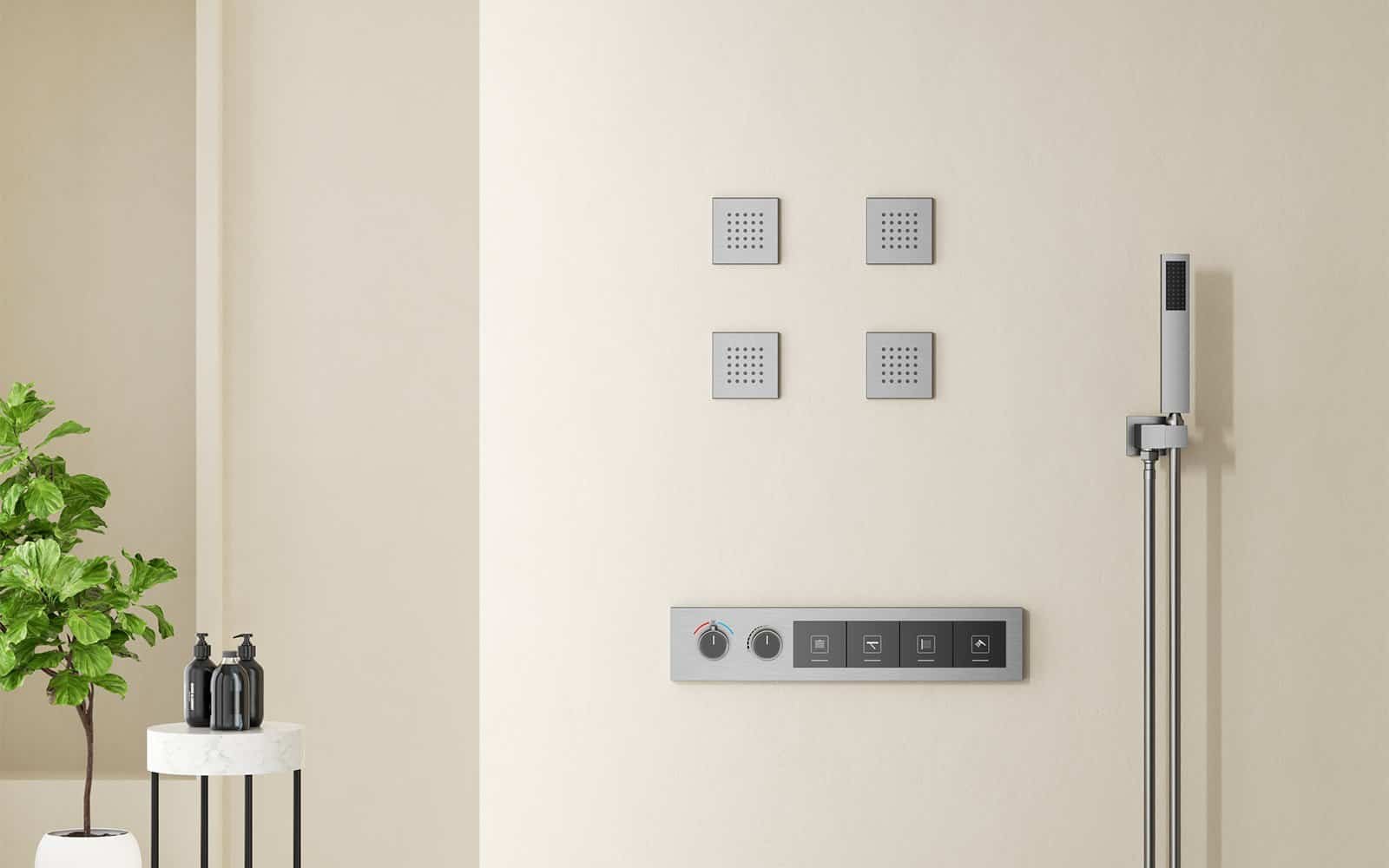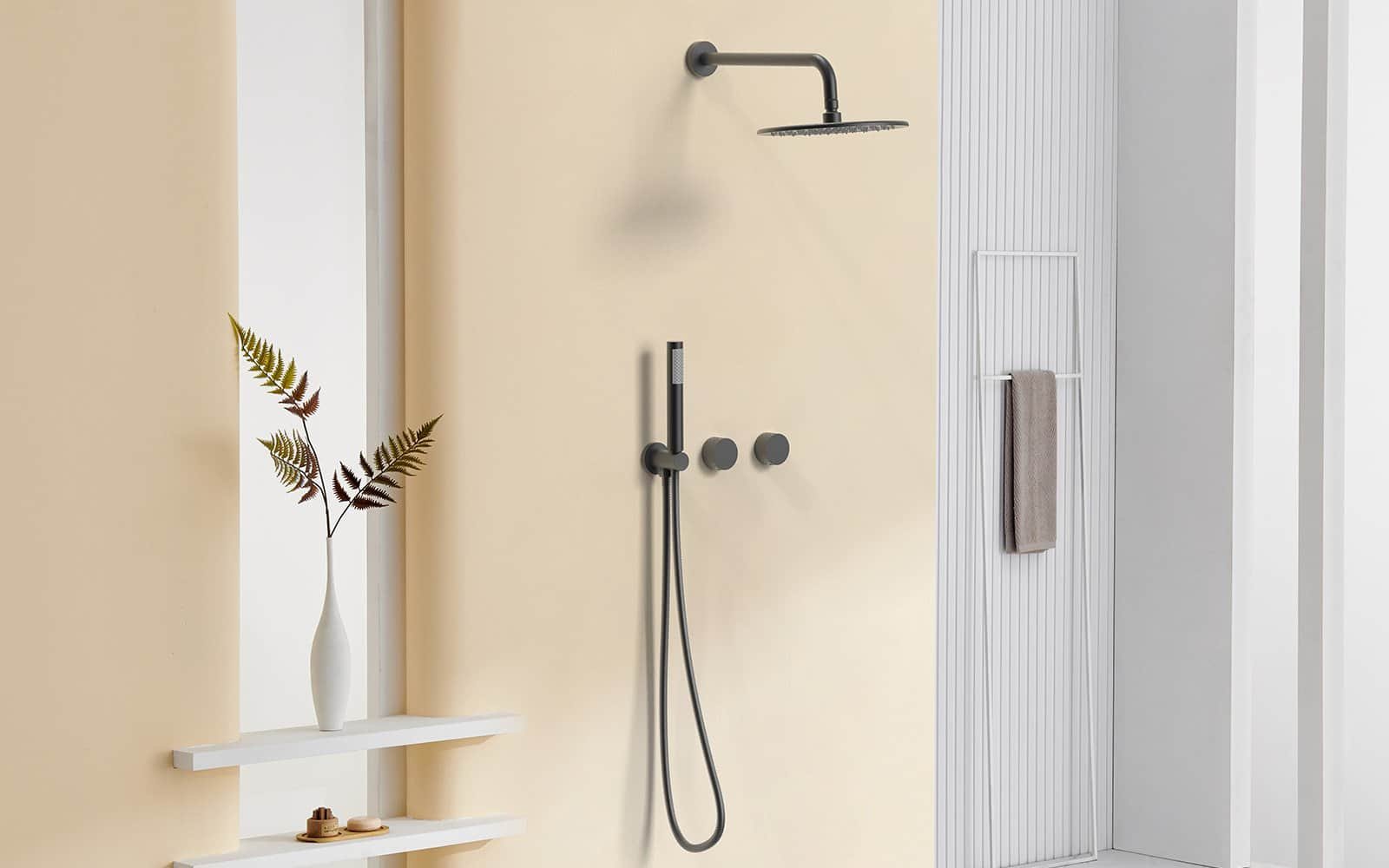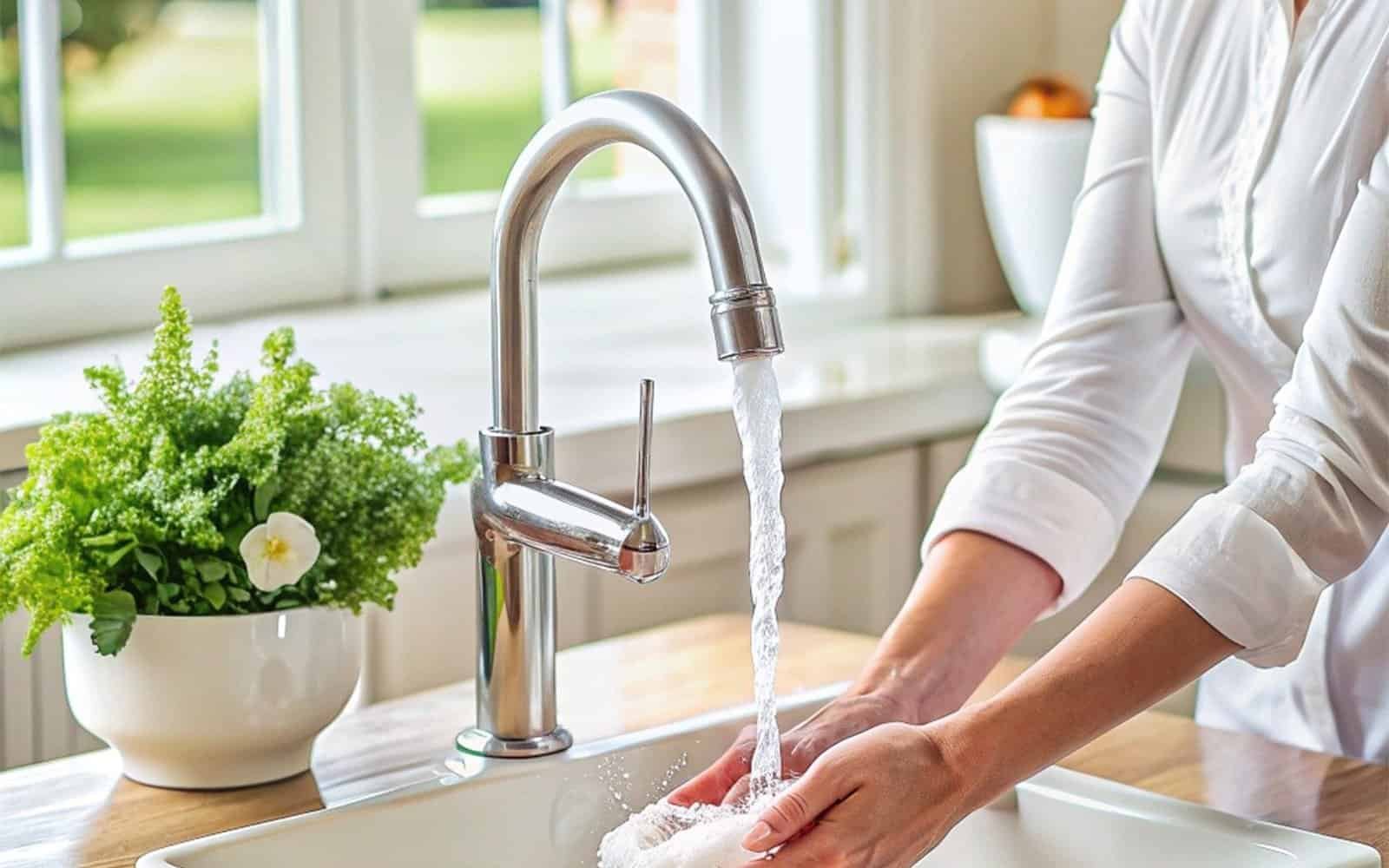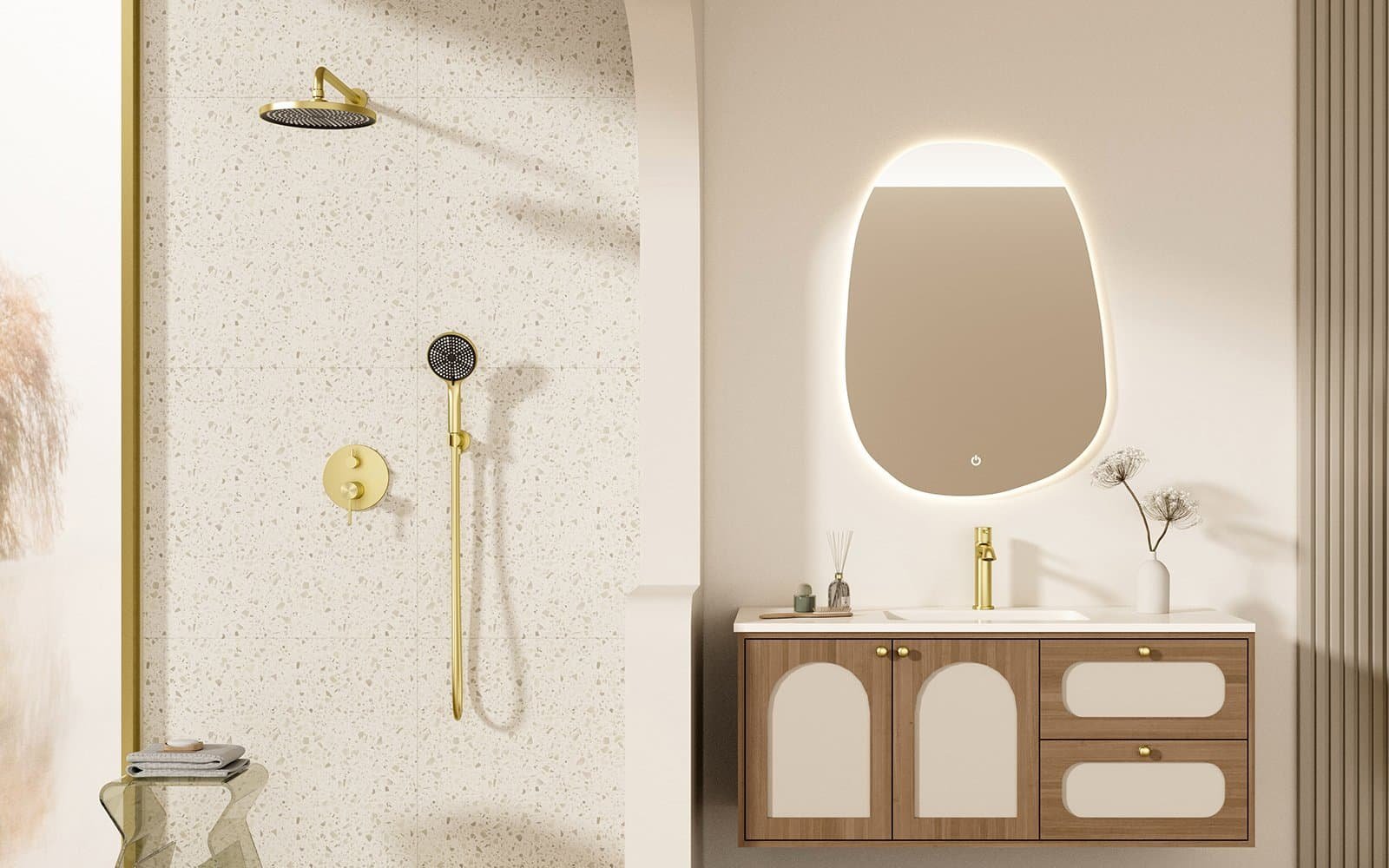Table of Content

Remodeling your bathroom can greatly enhance your home’s functionality and aesthetic appeal. Choose the best shower system is central to any bathroom remodel. The right shower system will enhance your bathroom’s look and improve your daily shower, adding convenience, comfort, and luxury.
Choosing the right showerhead and understanding plumbing are key to a successful remodel.
Assess Your Needs to choose the best shower system
1. Bathroom Size and Layout
- The dimensions and configuration of your bathroom significantly influence the type of shower system you can install. Larger bathrooms can fit multi-head systems, while smaller ones may need corner showers or shower/tub combos.
2. Water Pressure
- Understanding your home’s water pressure is crucial. Most showerheads perform optimally at pressures between 40 and 60 psi. Low water pressure may limit your options, especially for systems that need higher pressure to work well.
3. Style and Aesthetics
- Choose a shower system that complements your bathroom’s overall design. Whether you prefer modern, traditional, or minimalist styles, you can choose from finishes like chrome, bronze, or matte black.

Temperature Control Options
Thermostatic Valves
- Functionality:
These valves control the mixing of hot and cold water separately to maintain a consistent temperature. They prevent sudden temperature changes, which is particularly beneficial for families with children or individuals sensitive to temperature fluctuations. - Features:
- Offers a preset maximum temperature to prevent scalding.
-
It lets you adjust water flow and temperature separately, keeping the temperature steady even with pressure changes.
Pressure-Balancing Valves
- Functionality: This standard valve type maintains a balance between hot and cold water pressure. If there’s a drop in pressure (e.g., when another faucet is used), it adjusts the flow to keep the temperature stable.
- Limitations: These systems require you to readjust each time you turn on the shower, as they don’t save the previous settings.
Manual Control Systems
- Functionality: Traditional manual controls typically consist of knobs or levers that adjust both water flow and temperature simultaneously.
- Considerations: They’re simple but may lack the precision or safety features of thermostatic or digital systems.
Digital Shower Controls
- Functionality: These advanced systems allow precise control over water temperature and flow through electronic interfaces. Users can set specific temperatures and even program presets for different users.
- Features:
- Some models connect to smartphone apps for remote control.
- May include features like timers, pause functions, and alerts when the desired temperature is reached

Shower System Components
The components that make up a shower system include:
- Showerheads: Available in various styles, including rainfall, handheld, and dual configurations. Rainfall showerheads provide a spa-like experience, while handheld units offer flexibility.
- Valves and Controls: The heart of any shower system, valves manage water temperature and pressure. Advanced systems may include digital controls for precision.
- Body Sprays and Jets: These luxurious additions offer a massage-like experience, perfect for a home spa.
- Shower Panels: A complete system in one, with multiple sprays, jets, and a showerhead integrated into a single unit.
Installation and Maintenance Considerations
When choosing the best shower system, it’s important to consider both installation and maintenance.
- IY Installation vs. Professional Installation
- Simple systems (basic showerheads, valves) may be DIY-friendly.
- Advanced systems (smart showers, multiple sprays) require professional installation to ensure proper setup.
- Plumbing Requirements
- Check if your existing plumbing is compatible with your chosen system.
- High-end systems or those requiring extra water pressure may need plumbing upgrades.
- Installation Costs
- Budget for professional installation, especially if complex plumbing or electrical work is required.
- Ease for Maintenance
- Choose a system that’s easy to access for repairs or part replacement, especially for valves and control units.
- Material Durability
- Opt for corrosion-resistant materials like stainless steel or brass to reduce long-term maintenance needs.
- Cleaning Requirements
- Look for showerheads with self-cleaning nozzles to prevent limescale buildup.
- Smooth, non-porous finishes (like chrome or brushed nickel) are easier to clean.
- Spare Parts Availability
- Ensure replacement parts are readily available for your chosen brand and model.
- Routine Maintenance
- Descale and clean the nozzles regularly to prevent clogging.
- Inspect valves and controls regularly to ensure proper functionality.

Budget Considerations
Establishing a budget early in the process is essential. Shower systems range from affordable models to high-end luxury options with advanced features. Collaborating with a contractor can help you find solutions that fit both your needs and financial constraints
Popular Brands
Many reputable brands offer high-quality shower systems, but we don’t list them all here.
- Kohler: Known for its innovative designs and high-quality finishes.
- Moen: Offers a range of systems, from budget-friendly to luxury models.
- Delta: Known for its durability and strong customer support.
- Rosana: A new brand for luxury shower systems, unique design.
Conclusion
Selecting the best shower system involves balancing functionality, aesthetics, and budget considerations. Consider your needs—bathroom size, water pressure, and features—to create a shower that transforms your bathroom.







